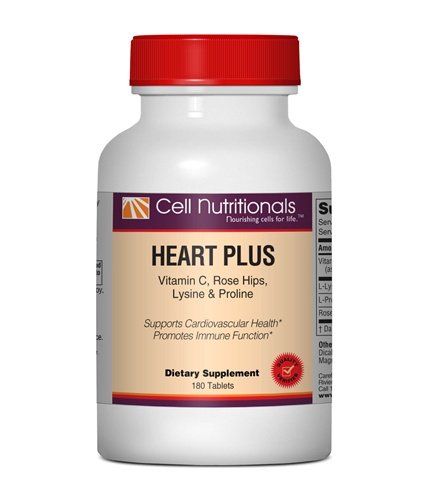Fitness fanatic or not, you’ve probably scratched your head a couple of times, trying to figure out whether you need vitamins and supplements on top of your regular diet. And with so many products available, and media sites writing sermons for each, it is hard to determine what you actually need. Let’s hope that this article will shed some light, eventually clearing things up.

Before you delve into the world of vitamins and supplements, hacking diet is your main priority. Unless you eat healthy, balanced and colorful, you’ll need a truckload of capsules to swallow.
Along with diet, you’ll need to consider other circumstances as well. Do you, for example, exercise, get enough sleep, have a physically demanding job? All these factors weigh in towards making the calculus. You’ll also have to consider vitamin and mineral deficiencies, stress, and time spent under the sun.
And instead of trying to make this guide your one-stop vitamin and supplements assessment checklist, I’ll stick with the basics – vitamins and supplements that you can take, regardless of workout intensity and everyday habits.
So let’s start with vitamins…
Vitamins that you can take every day

Instead of aiming for higher dosage, you should be thinking for the long run and take the recommended, or even below the recommended dose. I like to think about steady and low supplementation that stretches for months, instead of quick fixes that can disrupt your system.
Multivitamins, here, reign supreme. They include dozens of vitamins and minerals packed together, in small and sometimes insignificant dosage. If you don’t have vitamin and mineral deficiencies, these can be enough for steady and long-term supplementation.
Vitamin D cocktails are also necessary, especially when you lack enough exposure to sunlight. Vitamin D promotes calcium absorption, plays a role in cell growth modulation, has an immune function, and reduces inflammation. The adequate intake for an adult male or female is 600 IU per day.
Vitamin B cocktails are even more important. They include thiamin, riboflavin, niacin, biotin, folate, pantothenic acid, and Vitamin B6. Together, these vitamins help with energy production by converting carbohydrates, fat and glycose; they metabolize protein and carbohydrates, and play a role in the production of red blood cells and steroid hormones. Biotin also helps with DNA synthesis and cell growth.
Vitamin C is considered to be the run of the mill supplement. With hundreds of studies promoting an ever growing palate of vitamins and minerals, this one is out of the spotlight. But don’t throw your bottle just yet. Vitamin C helps to repair and regenerate tissues, aid in iron absorption, lower the risk of heart disease, decrease bad cholesterol, and protect against number of cancers. It also supports immune functions, and minimizes the symptoms of ordinary cold (which is quite common during lifestyle changes).
What about minerals?

While vitamin intake is harder to maintain via food, most of us are all set when it comes to minerals. Unless an illness or a deficiency is present, you don’t really have to take minerals, supposing your eat a healthy and balanced diet. But, most of us fail to eat healthy on consistent basis, so adding some minerals into the mix might be needed.
The four main minerals, which your body needs in larger amounts, are calcium, magnesium, sodium and potassium. But there are many others that are also important such as zinc, iron, manganese, selenium, sulfur, phosphorus etc.
So which of these do you need to take, and how often?
Fine-tuning your mineral intake can be really hard. And such is the case with minerals, that when one is present in the body in large amounts, the other (its pair) has a harder time making it to the cells.
Minerals work fast as well, and erase deficiency symptoms within 20 minutes of supplementation. That being said, you don’t have to take any more than recommended.
Unless you have a serious deficiency, mineral cocktails are everything that you need. But try to take them separately from vitamins, and always on an empty stomach.
*If you are into fitness and intense workouts, taking ZMA minerals can help with muscle recovery, sleep quality and increased strength and size. It is a laboratory tested anabolic mineral support formula containing zing, magnesium and Vitamin B6.
Other supplements
When it comes to other supplements, unless prescribed by a doctor, I can name just a few.
Fish oils, since rich in Omega fats, can greatly help with high blood pressure, reduce triglyceride levels, protect against heart disease, osteoporosis (and weak bones) and even lower the symptoms of depression. Taking a capsule cocktail is just about enough if you have a history of heart disease and high blood pressure in your family.
Probiotics (good bacteria) can help your digestive system to work properly, which in turn increases the effectiveness of both diet and other supplementation as well. They can also prevent allergies and cold, and improve urinary and vaginal health.
Caffeine can help reduce the risk of several types of cancer, relieve post-workout muscle pain, increase stamina during exercise, improve fertility in men, reduce the risk of kidney stone formation, reduce chronic inflammation and even prevent weight gain to a certain degree.
Amino acids like Leucine – which is one of the branched-chain amino acids (BCAAs), are important in assisting muscular health. Leucine is also an important component of whey protein, which explains its power to affect muscle growth. Leucine can also prevent muscle breakdown, so if you are lifting weights, or engaging in strenuous workouts, ask your doctor about this amino acid.
Whey protein results with rapid and large increase in plasma amino acids. Without affecting protein breakdown, it leads to quick protein synthesis. The effect is short-lived, so it is best to take this supplement right after your intense workouts.
Casein protein has a slower digestion, and results in slow but very steady release of amino acids into circulation. If you are involved in heavy lifting, taking casein protein before going to bed is a good idea. This is mainly because after casein intake the net protein balance for the next seven hours remains more positive.
There you have it – a complete guide for taking vitamins and supplements, along with minerals, that you can understand and put to good use. Do note, however, that this is not medical advice, and you should always consult with a doctor before acting on your own.